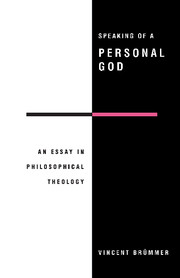3 - Can we resist the grace of God?
Published online by Cambridge University Press: 14 December 2009
Summary
Irresistibility
Towards the end of section 2.4 we suggested that the Christian way of life can best be described as a life lived coram Deo, in the presence of God. How we conceive of the relationship to God is therefore of significance for our view on the nature of life within this relationship. The question about the nature of our relationship with God is therefore fundamental, not only for theology, but also for the way of life of a Christian. Which of the relationships that people have with each other is the most adequate for us to use as a conceptual model for thinking about our relationship with God? In the Christian tradition there have been many different views on this, with far-reaching consequences for both doctrine and life.
These differences can be well illustrated with reference to the traditional theological claim that it is impossible for us to resist the grace of God, since different relation-models with reference to the relation between God and human beings entail different views about the nature of this irresistibility. The claim that God's grace is irresistible seems to be a necessary corollary of the view that salvation is by grace alone. If we were able to resist God's grace, it would seem that our salvation also depends on our not resisting it, and that we can therefore claim some of the credit ourselves instead of saying soli Deo gloria! and giving all the credit to God. For this reason the irresistibility of grace has in some form or another been explicitly defended or implicitly presupposed by many eminent theologians from the church fathers to the present day.
- Type
- Chapter
- Information
- Speaking of a Personal GodAn Essay in Philosophical Theology, pp. 68 - 89Publisher: Cambridge University PressPrint publication year: 1992



